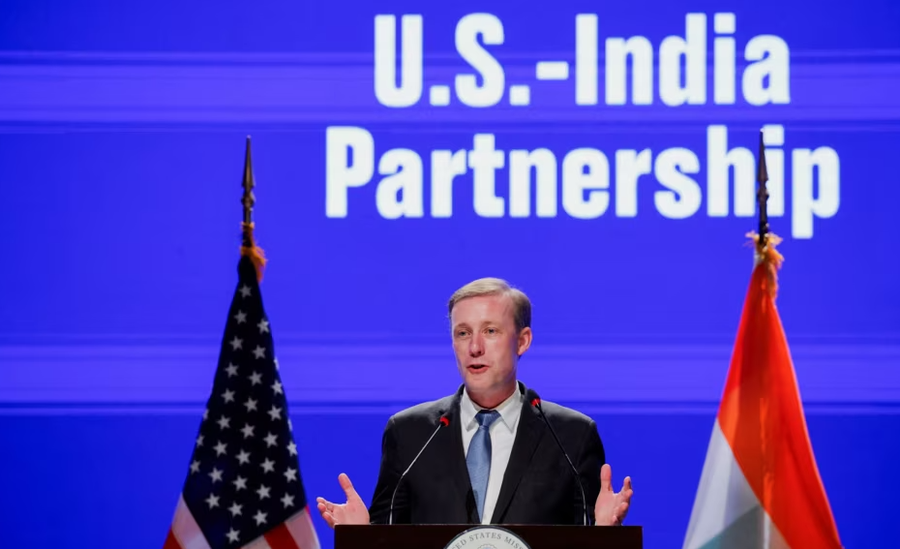
President Biden's administration on Monday lifted restrictions on India's nuclear power, coinciding with national security adviser Jake Sullivan's visit to New Delhi. Mr. Sullivan called India-US cooperation "vital" for peace and stability in the Indo-Pacific region. Security experts expect that cooperation with India will continue even during the presidency of Republican Donald Trump.
India's nuclear power ambitions face fewer constraints now, national security adviser Jake Sullivan said in New Delhi.
"The United States is now finalizing the necessary steps to remove old regulations that have hindered civil nuclear cooperation between India's major nuclear entities and US companies. Official documents will be approved soon and this will be an opportunity to overcome some from the frictions of the past", he said.
Indian rules previously created obstacles for US companies hoping to build power plants in India, because they said liability in the event of accidents fell on the builder or supplier of nuclear power plants.
President Joe Biden has raised Washington's relations with New Delhi to a higher level. In September he hosted Prime Minister Narendra Modi at his home for the first meeting of the leaders of the four countries, which are meant to act as a counterweight to Beijing.
Analysts in Washington say Mr. Sullivan's visit began with an important announcement on cooperation in the space, defense and other sectors, intended to emphasize to the incoming US administration the importance of relations with India.
"I think this really underscores the fact that India has a huge advantage, even bigger than some of our other partnerships," says expert Rick Rossow of the Center for Strategic and International Studies.
The partnership has grown despite differences between the two countries over issues such as India's continued ties to Moscow following Russia's aggression against Ukraine.
American expert Rossow believes that cooperation in the field of security will continue and he mentions the good personal relationship of President-elect Trump with Indian Prime Minister Modi. The tensions this time may be in the economic sphere.
"You will have less support for foreign investment, much more pressure on India to buy American goods, like hydrocarbons or defense equipment, over which the Indian government actually has control. So the economic side is where I'm a little more concerned. I think India will do better than many of our key partnerships in the next four years," he says.
The two countries are strengthening these relations in January./ VOA (A2 Televizion)











